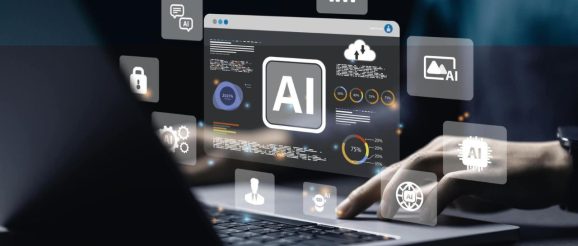The Future of Finance & Innovation: Can You Bank on Generative AI? | Editorialge

A groundbreaking new era of artificial intelligence (AI) is ready to challenge long-held beliefs about technology. For years, individuals employed in warehouses or fast-food restaurants have expressed concerns about the potential impact of automation on their employment. However, recent research indicates that generative AI, such as the one utilized in chatbots like OpenAI’s ChatGPT, is expected to have a significant influence on professionals in white-collar positions, particularly those in lucrative sectors like banking and technology. The nonprofit research institute Burning Glass Institute and SHRM, formerly the Society for Human Resource Management, released a report on Thursday. The report does not explicitly state that the technology will eliminate a significant number of jobs. However, it is evident that workers should enhance their readiness for a future where AI might have a substantial impact on various workplaces that have previously remained unaffected by technological changes. For individuals in the tech industry, this could imply that they might be constructing their own AI substitutes. “The individuals who will be most affected are those with college degrees, a group that has traditionally felt secure,” stated Matt Sigelman, the president of the Burning Glass Institute. The researchers calculated the share of payroll spending that goes to workers in the 200 occupations where generative AI is most likely to have an impact for many corporations. Business analysts, marketing managers, software developers, database administrators, project managers, and lawyers are just a few of the well-off people with college degrees who hold these positions. Finance companies such as Goldman Sachs, JPMorgan Chase, and Morgan Stanley are expected to face significant disruptions to their payrolls due to the rise of generative AI. Close behind are technology powerhouses such as Google, Microsoft, and Meta. Enabling AI to perform tasks traditionally done by humans can lead to significant cost savings for businesses. According to the research, banks and certain tech companies allocate a significant portion of their payrolls, ranging from 60 to 80 percent or even more, to employees in occupations that are most susceptible to the impact of emerging technology. According to the report, the retail, restaurant, and transportation industries are expected to experience minimal impact from generative AI. Many well-known companies, such as Walmart, McDonald’s, and Delta Air Lines, primarily hire employees who do not have college degrees. These individuals are responsible for tasks such as assisting customers, restocking shelves, preparing food, and managing baggage. They allocate less than 20% of their payrolls to workers in the professions where generative AI will most likely have an impact. The report does not provide any predictions regarding potential job losses associated with generative AI. According to the report, the decision of whether to bank the savings from AI automation or use it to invest and grow by adding more workers will be left to employers. Many experts predict that AI will have a significant impact on job roles in the coming years, potentially transforming them rather than completely replacing them. However, this could shift if there are significant advancements in technology. The report highlights the need for increased training to prepare workers to adapt to fast-arriving technology, said Johnny C. Taylor Jr., chief executive of SHRM. “Corporations and governments will need to make significant investments to stay ahead of this,” he said. The report represents a recent addition to the expanding body of research that aims to forecast the impact of generative AI on the economy and the workplace. Additional research has predicted a significant increase in economic growth and productivity with the automation of numerous job functions. This automation has the potential to save time, up to 50 percent, for routine office and coding tasks.
